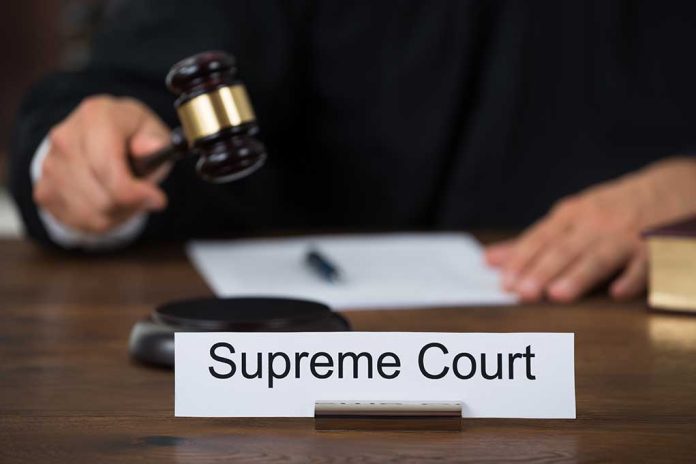
The Supreme Court’s decision to reject Apache sacred land protections paves the way for a massive copper mine that will destroy an ancient religious site while boosting America’s critical mineral supply.
Key Takeaways
- The Supreme Court declined to hear Apache Stronghold’s appeal, allowing Resolution Copper to proceed with mining on sacred Native American land in Arizona’s Tonto National Forest.
- The copper mine, backed by the Trump administration, is expected to supply 25% of America’s copper needs by tapping into the world’s second-largest copper deposit.
- Justices Neil Gorsuch and Clarence Thomas dissented from the Court’s decision, with Gorsuch calling it a “grievous mistake” with consequences that will “reverberate for generations.”
- The case highlights the Trump administration’s prioritization of domestic resource development while balancing religious freedom concerns.
Court Decision Clears Path for Critical Resource Development
In a significant decision that prioritizes economic and national security interests, the Supreme Court has declined to hear an appeal from Apache Stronghold, a nonprofit group representing tribal interests. This ruling effectively allows Resolution Copper to proceed with developing what could become one of America’s most productive copper mines. The project, located in Arizona’s Tonto National Forest on land known as Oak Flat (or Chi’chil Bildagoteel to the San Carlos Apache tribe), is expected to produce up to 40 billion pounds of copper and supply approximately 25% of the nation’s copper needs.
“While this Court enjoys the power to choose which cases it will hear, its decision to shuffle this case off our docket without a full airing is a grievous mistake — one with consequences that threaten to reverberate for generations,” said Neil Gorsuch, Supreme Court Justice.
The case traces back to a 2014 land swap approved by Congress as part of a defense spending bill, which transferred 9.71 square kilometers of federal land to Resolution Copper in exchange for other Arizona properties. This arrangement, actively supported by the Trump administration, recognized the strategic importance of developing domestic copper resources rather than relying on foreign suppliers. The 9th U.S. Circuit Court of Appeals previously ruled 6-5 that the land transfer did not “substantially burden” the tribe’s religious rights, setting the stage for the Supreme Court’s decision.
Religious Freedom Concerns Raised by Conservative Justices
In a notable development that highlights the complexity of this case, conservative Justices Neil Gorsuch and Clarence Thomas broke from their colleagues to express strong dissent. Both justices characterized the Court’s decision as “a grave mistake,” reflecting concerns about religious liberty that resonate deeply with conservative values. Their opposition underscores the delicate balance between resource development and protecting religious freedoms that has challenged courts across multiple administrations.
“Since time immemorial, Western Apaches and other Native peoples have gathered at Oak Flat, outside of present-day Superior, Arizona, for sacred religious ceremonies that cannot take place anywhere else,” said Apache Stronghold.
The Apache Stronghold had argued that the mining project violates their religious rights under both the First Amendment and the Religious Freedom Restoration Act. The land has historical significance as a site for prayer, ceremonies, and burials dating back generations. Critics of the mining project warn that the operation could eventually create a massive crater approximately 3 kilometers wide and 304 meters deep, permanently altering the landscape and preventing traditional religious practices from taking place.
Economic Benefits and National Security Implications
Resolution Copper, a subsidiary of international mining giants Rio Tinto and BHP, has emphasized its commitment to working with local communities while developing this critical resource. The project stands to create significant economic benefits for Arizona while bolstering America’s domestic mineral supply chain. This aligns with broader Trump administration policies aimed at reducing dependency on foreign sources for critical minerals and strengthening national security through resource independence.
“Resolution Copper has engaged in extensive consultation with Native American tribes and local communities for more than a decade,” said Vicky Peacey, senior manager for Resolution Copper. “Ongoing dialogue will continue to shape the project.”
Despite the Supreme Court’s decision, Apache representatives have vowed to continue their fight. Wendsler Nosie Sr., former chairman of the San Carlos Apache Tribe and leader of Apache Stronghold, remains defiant, suggesting that additional legal and legislative avenues will be pursued. “While this decision is a heavy blow, our struggle is far from over. We urge Congress to take decisive action to stop this injustice while we press forward in the courts,” he stated, reflecting the determination of those opposing the project.





